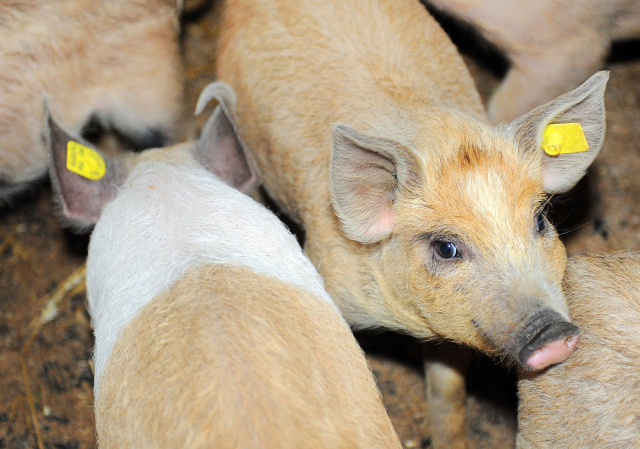African swine fever reported in Romania
Bucharest requests EU funds to support farms affected by outbreak of African swine fever.

Ştefan Stoica, 18.07.2018, 12:06
Romania has requested funds from the European
Union for the farmers affected by an outbreak of African swine fever in pigs.
The request was made on Tuesday by the agriculture minister Petre Daea at a
meeting in Brussels with his EU counterparts. According to Daea, 12 of the
ministers present showed solidarity with the situation in Romania. The funds
would help cover the losses suffered by farmers following the culling of the
sick pigs, the suspension of meat production and a drop in the price of pork in
the areas affected. The aid will also cover costs related to cleaning and
disinfection and the destruction of fodder.
The agriculture ministry says Romania continues
to take measures to contain the virus. At the moment, most outbreaks have been
reported near the border with Ukraine. The counties with the biggest number of
cases are the north-western county of Satu Mare and the south-eastern county of
Tulcea. More than 300 cases have been reported so far. The culling continues
and the teams sent in by the National Sanitary and Veterinary Authority are
taking measures to prevent the virus from spreading.
The representatives of pig farmers say the
situation is very serious because it affects the commerce with pork around the
country. Ioan Ladosi, the president of the association of pork producers told
the public station there is a risk of a crisis on this market:
Unless this situation is solved as soon as
possible, we believe it will lead to a crisis and this crisis can be major. It
would mean banning commerce with live animals and carcasses all over the
country. The virus can live for up to three years in frozen meat, so we have a
problem, not necessarily in terms of human health, because people will not catch
the disease, but in terms of the spread of the virus.
Tulcea is the county most strongly affected by
the spread of African swine fever. Local officials have explained that the virus
originated in the Danube area, near the border with Ukraine, later spreading to
the centre of the county. The economic losses are significant. For example, a
pig farm with 50,000 pigs had to slaughter almost half of them. The culling,
which is obligatory in this case, places the future of the farm in doubt. The
farm has also had to let go of almost half of its employees.
Wild boars are to blame for the spread of the
virus, but hunters say hunting is not recommended at this point, because
fleeing boars can spread the disease to areas that have not been affected.






























